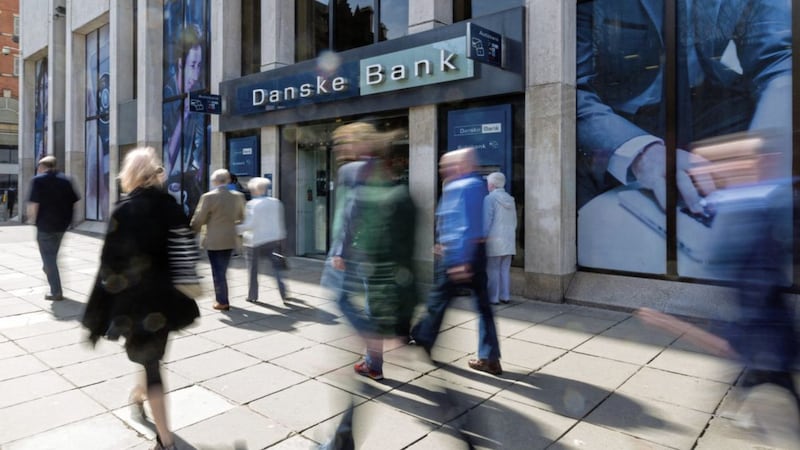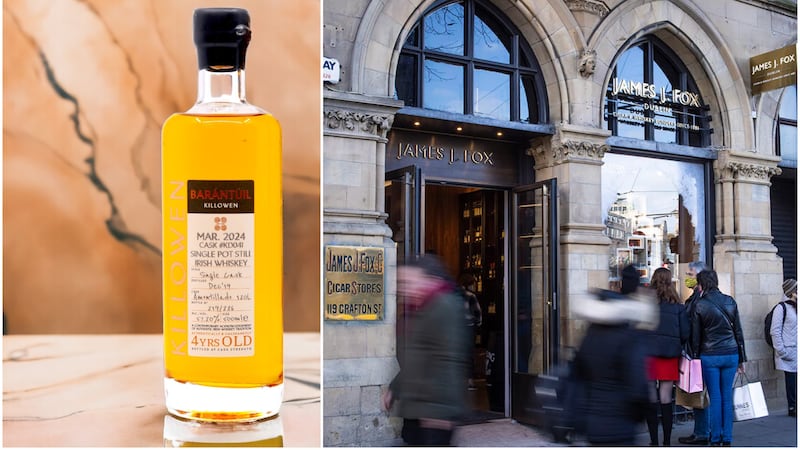DANSKE Bank's strongest period of growth in a decade has been tempered with fears that large corporate businesses are delaying on investment decisions or making other contingency plans for Brexit by investing outside Northern Ireland.
"That's a pity, but it reflects the uncertainty in the market and there's little we can do about it," the bank's regional chief executive Kevin Kingston said.
"The economy is growing, but we're looking at a lost opportunity, because we're not seeing the big ten-year investment decisions as businesses are hedging on their bets because of Brexit."
He was speaking as the north's largest bank reported a 26 per cent uplift in pre-tax profits during the last calendar year - £147.5 million in 2017 against £117m a year earlier as its overall income rose slightly from £228.9m to £230.9m.
Lending rose by 9 per cent, or around £400 million, to £4.95 billion, while its deposits lifted to £6.65 billion.
And Danske - which employs 1,400 staff at 44 branches, three regional business centres and its Belfast head office - also reported a stellar year of growth in its mortgage business.
"We had a 28 per cent increase in new mortgage lending year-on-year, and we now provide around one in five of mortgages in Northern Ireland," Mr Kingston added.
The bank's numbers also signalled a significant return to the commercial property space, which included £75 to the NI Federation of Housing Associations, £45m of lending to the Titanic Quarter, £27m to Erskine House and £27m to the Herbert Group.
Danske re-assessed its defined benefit pension arrangements during the year, closing it to future accrual. This relates to employees who joined the bank before December 2003. From October this year all staff will avail of a competitive defined contribution pension arrangement - which Mr Kingston said had met with the approval of the banks unions.
Among the organisation's biggest internal investments during the year were in its digital transformation and an upgrade of its branch network (which was reduced by two during 2017.
Mr Kingston said: “Digital innovation continues at a strong pace, and is expected to accelerate further in 2018, partly because of increasing customer expectations and the advent of Open Banking in the UK.
“Our work to progress the digital agenda was further strengthened by the appointment of a chief digital officer and we saw further customer adoption of our digital channels, with more than four million digital log-ons per month and a19 per cent increase in digital transactions year-on-year.
"New offerings included the introduction of Apple Pay, Fitbit Pay and the launch of a new mobile optimised website focused on enhancing user experience.
“Another example of ongoing digital investment has been our focus on upgrading key branches, making them more digitally interactive and conducive to good customer experiences.
"Five of our flagship branches underwent transformational change in 2017, with more planned for development in 2018. At the same time, we also closed two branches in response to the continuing changes in customer behaviour."
He added: “In the small business sector, we completed a programme of relocating our small business advisers back into key branches throughout Northern Ireland.
"This decision was taken as a result of strong feedback from small businesses and it has allowed our people to be more accessible and closer to customers. These changes have made a tangible impact, with an average of 37 new small business relationships being established every week.
“Lending to medium to larger-sized businesses was also up, 3 per cent higher year-on-year, and the corporate sector in particular remained buoyant, despite ongoing economic uncertainty as a result of the EU referendum."






